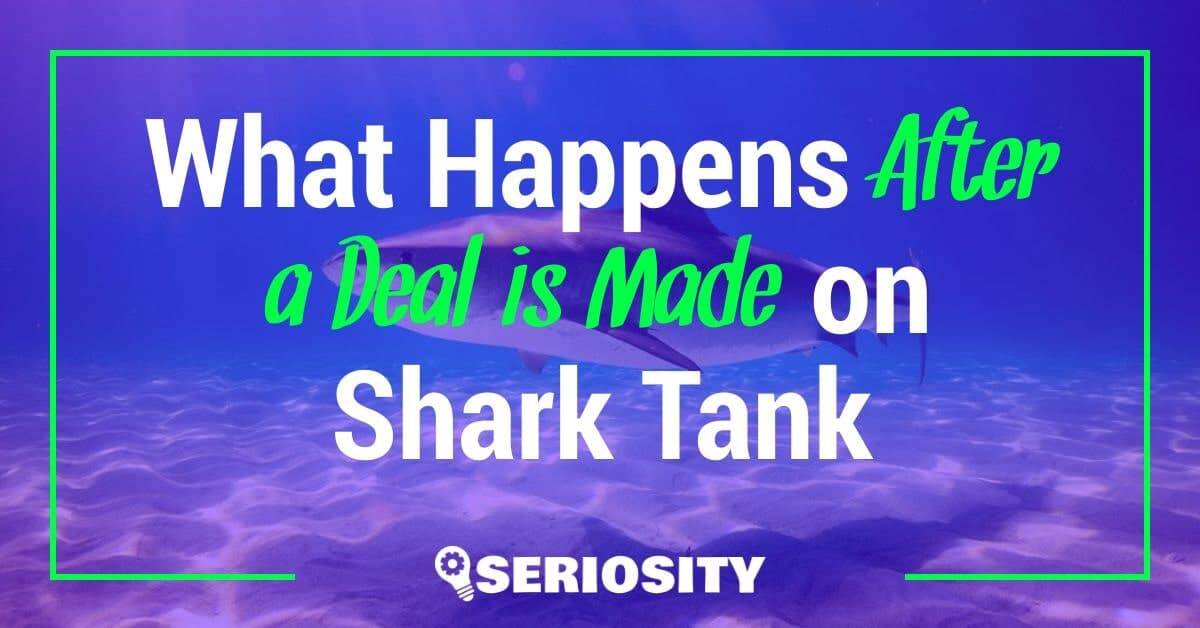ABC’s Shark Tank is the American Dream played before viewers eyes. We’ve all seen elated business owners leaving with deals that will change their lives. Unlike the majority of reality shows, the deals are real. However, after being taped, such handshake agreements frequently alter or dissolve.
What Happens After a Deal is Made on Shark Tank?
According to Kevin O’Leary, business owners on the show may become overexcited by the cameras and lights and overestimate the potential of their organizations. O’Leary says, “We go check the facts and they don’t always turn out the way they said, and that may be why a deal doesn’t close.”
The Deals by the Numbers
A FORBES Business report reveals that in the first seven seasons of Shark Tank, 319 companies accepted offers on-air. FORBES’ interviews with 237 of these business owners, also revealed that 73% of them did not close the precise deal they had negotiated on television.
The original deal falling through is not necessarily bad news. Some participants say that the publicity they gained from being on the show was worth more than the deal they finally ironed out with the investors. So altered conditions or dead deals don’t necessarily mean the death of a business.
Some Deals are Dead on Arrival
Most of those interviewed—about 43%—said that their negotiations fell through following the performance. They tribute that to the sharks either backing out of the deal or changing the terms to suit their needs. Others backed out of agreements after receiving term sheets with objectionable terms.
Harmonious Changes to the Deal
An additional 30% of those FORBES spoke with claimed that the equity and investment amount offered on-air altered after being recorded, but they still accepted the arrangement. They claimed that modifications frequently take place during contract talks or due diligence, which is the research done on a person or company before signing a contract.
Certain investors are less willing to change their deals once the cameras stop rolling. Only 25% of the agreements Mark Cuban made on-air were altered, although he closes more deals than any other.
No Deal Doesn’t Mean No Business!
Entrepreneurs that take part in Shark Tank want to clinch a deal. However, it isn’t always a tragedy if one comes apart. The majority of the companies—about 87 percent—that didn’t land deals, are still in operation. The remaining businesses have closed, been bought, or been sold.
Shark Tank’s fourth season featured Matt Canepa and Pat Pezet pitching their chewable coffee pouch startup, Grinds. For $75,000, they agreed to give Daymond John and Robert Herjavec 15% of the business. However, negotiations failed to produce a deal.
Before their episode aired in 2012, Grinds had generated sales of nearly $300,000. The business generated $330,000 in revenue the month their program debuted.
When Grinds’ episode first aired, they made $1.35 million, and since then, their earnings have increased. They expect doing more than $4 million this year.
Cofounders of the grooming accessory business Beard King, Nicholas and Alessia Galekovic, reached a deal with Lori Greiner in season. The contract, however, was no longer appropriate for the company’s needs as sales boomed around the time they shot their episode.
Negotiations failed to result in an agreement. However, the business generated sales of about $700,000 in the year after the episode’s airing. Over $1.6 million is what they expect for this year.
3 “Shark Tank” Products that were Turned Down but are Now Very Successful
Ring
When Jamie Siminoff, the creator of Ring, appeared on the program, he valued his business, which was then known as DoorBot, at $7 million.
Since then, it has benefited from the assistance of notable investors like Richard Branson, Goldman Sachs, Qualcomm Ventures, Kleiner Perkins Caufield Byers, and Kleiner Perkins Caufield Byers. Ring’s multifaceted talents go beyond home security, as seen by the over $1 billion price tag of Amazon’s acquisition of the company.
Since then, Ring has expanded beyond video doorbells, offering anything from complete security systems to smart lights. Ring may be the most famous Shark Tank deal that went bad because it was sold to Amazon.
Kodiak Cakes
The founder of Kodiak Cakes, which produces whole grain, protein-rich breakfast alternatives, appeared on the program looking for a $500,000 investment for 10% of the company. None of the Sharks agreed with the valuation, despite the fact that they all enjoyed the flavor and nutritional advantages of these pancake mixtures.
With a full range of goods, including oats, granola bars, graham crackers, protein balls, and microwaveable flapjack cups, it now boasts annual sales of $160 million.
Meal Enders
The Sharks were interested in the idea of MealEnders, a candy lozenge created to curb overeating, although some did not enjoy the flavor. The business had modest revenues of $1.2 million at the time the episode aired in the beginning of 2017. In just one short year, sales had reached $5 million.
FAQs about Shark Tank Deals
What Shark Tank deals have crashed?
Some of the businesses that appeared on Shark Tank and ultimately went out of business include ShowNo Towels, Body Jac, ToyGaroo, You Smell Soap Sweet Ballz, CATEapp, and Breathometer.
Who of the sharks has the most profitable deals?
The Comfy, which Barbara Corcoran invested $50,000 in, has quickly moved to the top of Shark Tank’s Most Successful Products with sales of over $250 million.
Who is the richest investor on Shark Tank?
- Mark Cuban, $4.5 billion.
- Kevin O’Leary, $400 million.
- Daymond John, $350 million.
- Robert Herjavec, $200 million.
- Lori Greiner, $150 million.
- Barbara Corcoran, $100 million.
Do sharks get paid on Shark Tank?
The sharks are compensated as cast members of the show, but they invest their own money. If a panelist is interested, the entrepreneur can agree to a contract on a handshake (gentleman’s agreement) during the show. But if every panelist declines, the businessperson is left with nothing.





